
|
Astronomy Picture Of the Day (APOD)
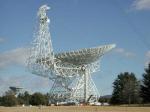 The 100 Meter Green Bank Radio Telescope
The 100 Meter Green Bank Radio Telescope
11.03.2002
The largest single-dish fully steerable radio telescope began operation in 2000 August in Green Bank, West Virginia, USA. Dedicated as the Robert C. Byrd Green Bank Telescope, the device weighs over 30 times more than the Statue of Liberty, and yet can point anywhere in the sky more precisely than one thousandth of a degree.
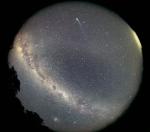 A Southern Sky View
A Southern Sky View
10.03.2002
On 1996 March 22, a Galaxy and a comet shared the southern sky. They were captured together, from horizon to horizon, in the night sky above Loomberah, New South Wales, Australia by astronomer Gordon Garradd. Garradd used a home made all-sky camera with a fisheye lens, resulting in a circular 200 degree field of view.
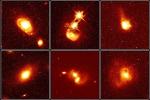 A Quasar Portrait Gallery
A Quasar Portrait Gallery
9.03.2002
Quasars (QUASi-stellAR objects) lie near the edge of the observable Universe. Discovered in 1963, astronomers were astounded that such objects could be visible across billions of light-years, as this implies they must emit prodigious amounts of energy. Where does the energy come from?
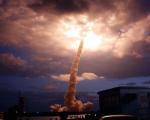 Columbia Dawn
Columbia Dawn
8.03.2002
Trailing a thick column of exhaust, the Space Shuttle Columbia blasted into the twilight morning sky on March 1, its thundering rockets briefly flooding a cloud bank with the light of a false dawn. The event marked the start of the ongoing eleven day mission to upgrade the Hubble Space Telescope.
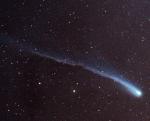 Comet Ikeya Zhang Brightens
Comet Ikeya Zhang Brightens
7.03.2002
In the last week, Comet Ikeya-Zhang has become bright enough to be just visible to the unaided eye. Based on its present activity, observers are optimistic that Ikeya-Zhang will become substantially brighter. This composite...
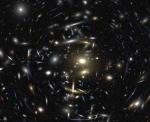 Simulated Galaxy Cluster View
Simulated Galaxy Cluster View
6.03.2002
Stunningly detailed, this picture is a computer simulated view of a cluster of galaxies in the distant cosmos. A large, elliptical galaxy dominates this hypothetical cluster's central region surrounded by a swarm of member galaxies.
 Earth in True Color
Earth in True Color
5.03.2002
Here are the true colors of planet Earth. Blue oceans dominate our world, while areas of green forest, brown mountains, tan desert, and white ice are also prominent. Oceans appear blue not only because water itself is blue but also because seawater frequently scatters light from a blue sky.
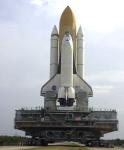 The Shuttle Crawler Transporter
The Shuttle Crawler Transporter
4.03.2002
NASA's Crawler-Transporters are the largest tracked vehicles in existence. Although the crawlers pack over 5,000 horsepower, their top speed is less than two kilometers per hour when fully loaded. Eleven people are needed to drive a single crawler. Diesel fuel mileage is about 350 liters per kilometer (less than 0.007 miles per gallon).
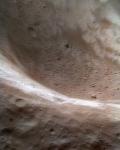 The Regolith of Asteroid Eros
The Regolith of Asteroid Eros
3.03.2002
From fifty kilometers above asteroid Eros, the surface inside one of its largest craters appears covered with an unusual substance: regolith. The thickness and composition of the surface dust that is regolith remains a topic of much research.
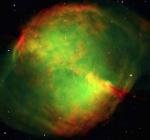 M27: Not A Comet
M27: Not A Comet
2.03.2002
While searching the skies above 18th century France for comets, astronomer Charles Messier diligently recorded this object as number 27 on his list of things which are definitely not comets. So what is it?
|
January February March April May June July August September October November December |
|||||||||||||||||||||||||||||||||||||||||||||||||